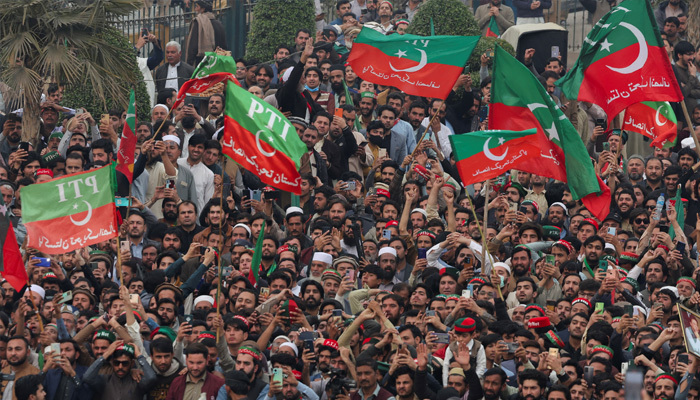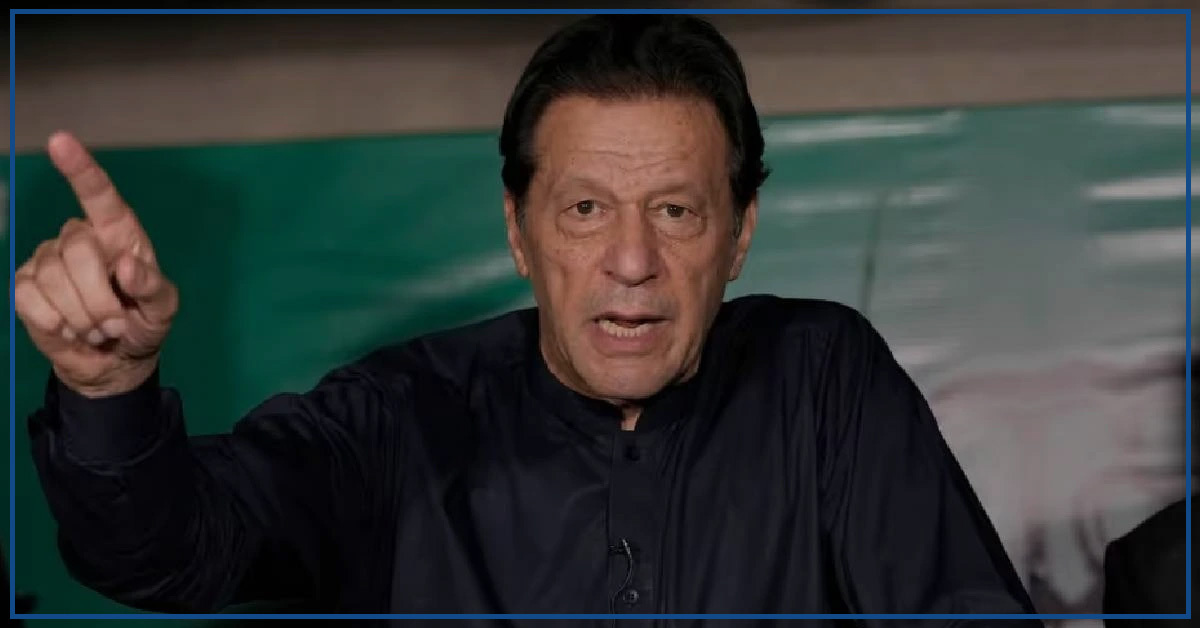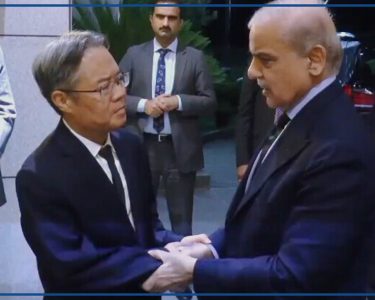The Pakistani government has announced plans to ban Pakistan Tehreek-e-Insaf (PTI), the political party founded by former cricketer and politician Imran Khan, who has been imprisoned for nearly a year. On July 15, Information Minister Attaullah Tarar revealed the government’s intention during a press conference in Islamabad, citing accusations of inciting violent protests last year and leaking classified information.
“The government has decided to ban PTI after reviewing all available evidence. We will move a case to ban the party,” Tarar declared.
The announcement by the Pakistan Muslim League-Nawaz (PMLN) government sparked widespread condemnation from political rivals, allies, and human rights groups, including the United States. Leaders of the Pakistan People’s Party (PPP), the second-largest party in the ruling coalition, stated they were not consulted before the announcement.
“We were never taken on board, nor have they reached out to us since. We found out about the government’s decision through the information minister’s press conference,” PPP Senator Saleem
The Human Rights Commission of Pakistan (HRCP), the country’s foremost rights body, called the decision an act of “political desperation.”
“HRCP demands that this unconstitutional decision be withdrawn immediately. If implemented, it will only deepen polarization and likely lead to political chaos and violence,” the commission stated.
Facing significant criticism, the PMLN leadership has backtracked, saying the final decision would not be taken without consulting coalition allies.
“There are multiple factors behind the proposal to ban PTI, but we will first present our reasons for banning to our allies. Only when there is consensus will we move forward with further actions,” Defence Minister Khawaja Asif
Observers believe the plan to ban PTI, whose leader Imran Khan has been jailed since August last year, was conceived following a Supreme Court verdict last week. The verdict granted PTI a major legal victory by declaring it eligible for reserved seats in the national and provincial assemblies and recognizing it as a political party.
The controversy over reserved seats erupted following the February general elections. A month before the polls, the election commission revoked PTI’s electoral symbol, a cricket bat, on charges of violating electoral laws. Days before the election, Khan was sentenced on multiple charges. Despite this, PTI’s candidates, running independently, won the most seats (93), compared to the PMLN’s 75 and PPP’s 54. With reserved seats added after the Supreme Court ruling, the PMLN-led government would lose its two-thirds majority in parliament, needed for constitutional amendments.

“They [the government] just want to weaken their rival in any way possible, especially as PTI is getting relief from the courts,” political analyst Ahmed Ijaz said.
Pakistan has a history of banning political parties under both military dictatorships and civilian administrations. The last two instances of banning political parties occurred under the PTI government. The Sindhi Nationalist party Jeay Sindh Qaumi Mahaz-Aresar was banned in May 2020, and the far-right religious outfit Tehreek-e-Labbaik Pakistan was banned in May 2021, although the latter successfully appealed its ban.
Khan, who served as prime minister from August 2018 to April 2022, has accused the country’s powerful military establishment of colluding with his political rivals to keep him out of power. The military denies these charges.
PTI faced a harsh crackdown following the May 9 violence last year, which erupted after Khan was detained for less than 48 hours. PTI supporters went on a rampage, destroying public properties and targeting military installations and monuments. Thousands of protesters were arrested, and more than 100 were tried in military courts.
Former PTI Secretary General Asad Umar, who left the party and retired from politics in November 2023, believes the decision to ban PTI will not come to fruition.
“I don’t think even PMLN leaders are serious about banning the party, I think this is merely another tactic to buy time and build pressure.”
Constitutional expert Faisal Fareed Chaudhry emphasized that under Pakistan’s constitution, political parties can only be banned by the Supreme Court.
“The government can file a reference, but the final verdict will be from the Supreme Court. It is important to remember that only last week the court declared PTI a political party,”
Chaudhry added that accusations leading to a ban must include evidence of actions against state sovereignty or collusion with a foreign power.
“I don’t think the government has substantial evidence to move this case. This is just to pressure the judiciary, which ruled against the government in the reserved seats matter. It appears the government has no plan, nor will this decision worry PTI,” he added.
Ijaz, the political analyst, warned that the move to ban PTI could backfire on the government. “Attempts to ban political parties in the past have not been successful, whether under political regimes or dictatorships, even though those banned were not as strong as PTI,” he said.
Asif, the federal minister, asserted that the government has collected ample evidence against PTI to push for a ban. He also dismissed criticism from the West.
“This is an internal matter for us,” he said, “and it should not matter what the global community says about a decision we are making for our domestic affairs, in line with our constitution.”





